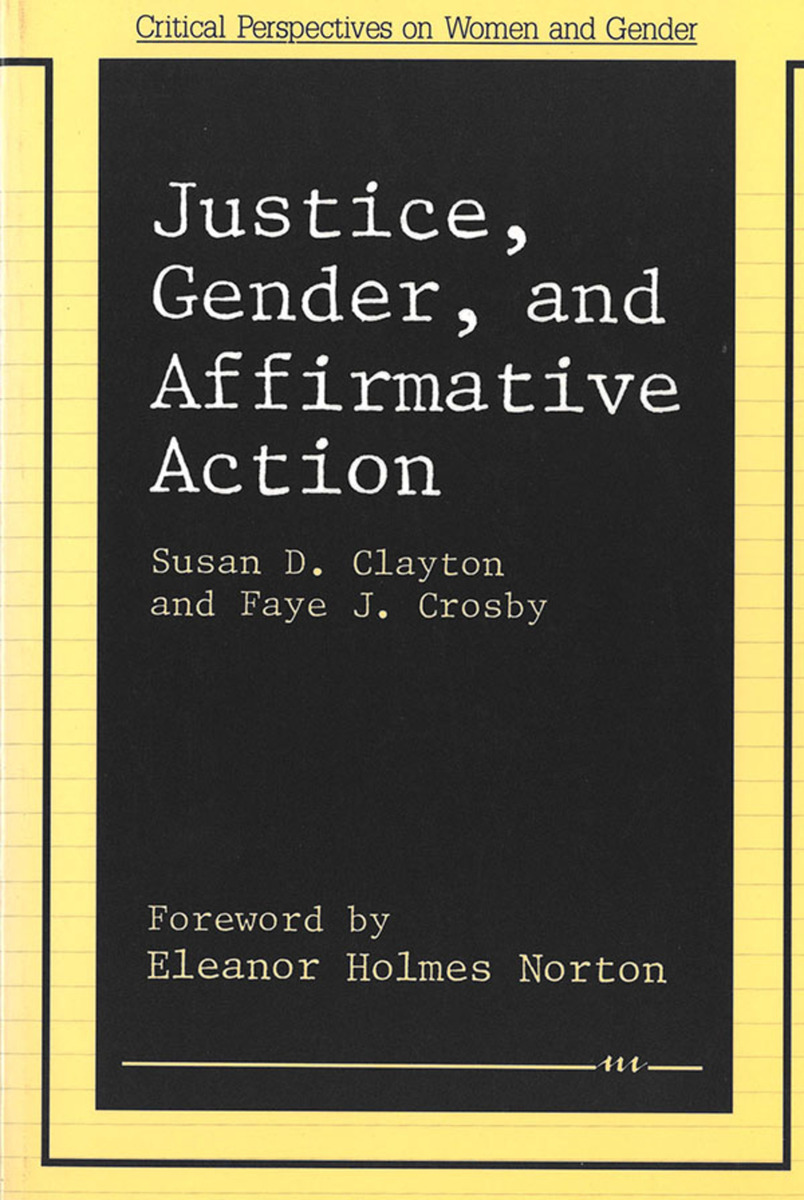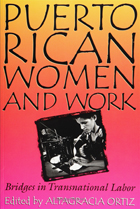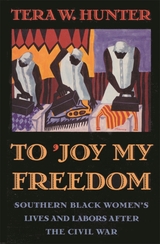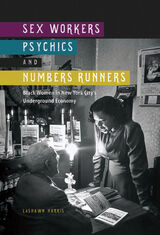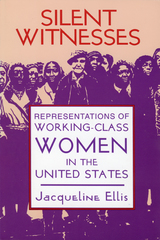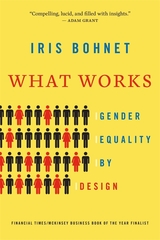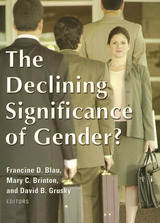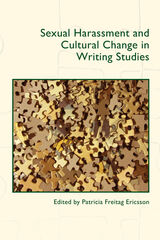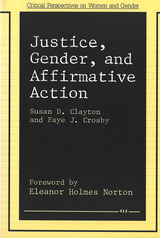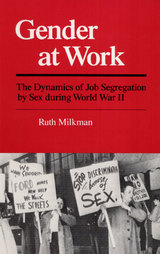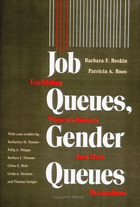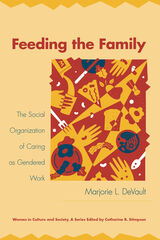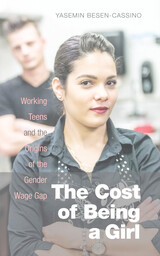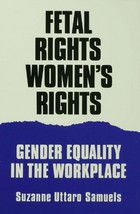Justice, Gender, and Affirmative Action
University of Michigan Press, 1992
Cloth: 978-0-472-09464-6 | Paper: 978-0-472-06464-9 | eISBN: 978-0-472-22315-2 (standard)
Library of Congress Classification HD6060.5.U5C58 1992
Dewey Decimal Classification 331.133
Cloth: 978-0-472-09464-6 | Paper: 978-0-472-06464-9 | eISBN: 978-0-472-22315-2 (standard)
Library of Congress Classification HD6060.5.U5C58 1992
Dewey Decimal Classification 331.133
ABOUT THIS BOOK | AUTHOR BIOGRAPHY | REQUEST ACCESSIBLE FILE
ABOUT THIS BOOK
Justice, Gender, and Affirmative Action by Susan D. Clayton and Faye J. Crosby offers a deep dive into the complex debates surrounding affirmative action through the lens of gender and social psychology. Addressing the persistent gender disparities in the workplace, the authors argue for the necessity of affirmative action to combat ingrained biases and structural inequalities that permeate both economic and sociological dimensions. They use the theory of relative deprivation to illustrate how societal injustices can be overlooked by both victims and society, underscoring the importance of proactive measures like affirmative action. The book analyzes various judicial precedents shaping the discourse and application of affirmative action, highlighting their impact on women's progress, particularly white women, who have benefited significantly from these programs. With insights drawn from numerous studies, the authors argue that affirmative action is essential and propose strategies for its effective implementation, emphasizing that these policies should address systemic biases rather than attempt to compensate for perceived deficiencies within marginalized groups. Through a meticulous examination of the controversies and criticisms of affirmative action, Clayton and Crosby guide readers towards a nuanced understanding of its necessity in promoting justice and equity in contemporary society.
See other books on: Affirmative Action | Affirmative action programs | Gender | Justice | Sex discrimination in employment
See other titles from University of Michigan Press
